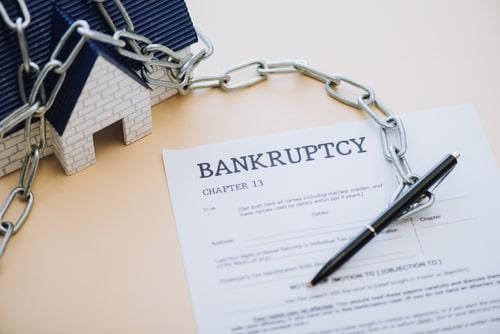Can I Catch Up on My Mortgage by Filing for Chapter 13 Bankruptcy?

Are you struggling to make your monthly mortgage payments? Are you afraid of losing your home to foreclosure? If so, you may be considering whether filing for bankruptcy is the right move for you.
Most people are familiar with Chapter 7 bankruptcy, which involves liquidating your assets to pay off your debts. However, what you may not know is that there is another type of bankruptcy—Chapter 13—that can help you keep your home. In a Chapter 13 bankruptcy, also known as a wage earner's plan, you propose a repayment plan that outlines how you will repay certain debts over three to five years.
One of the benefits of a Chapter 13 bankruptcy is that it allows you to catch up on missed mortgage payments. Filing for Chapter 13 bankruptcy can give you the time you need to bring these payments current, while also making ongoing payments toward your mortgage and ensuring that other types of debts will be eliminated in the future.
How Does Chapter 13 Bankruptcy Work?
If you decide to pursue a Chapter 13 bankruptcy, the first step is to file a bankruptcy petition in your local bankruptcy court. Once the petition is filed, an automatic stay goes into effect, which means that creditors are prohibited from taking any collection action against you, including foreclosing on your home.
Within 30 days after filing your petition, you will prepare and submit a proposal for a repayment plan to the court and begin making payments. In general, this plan must provide for full payment of priority claims within three to five years. Priority claims include things like back taxes and child support. Some unsecured debts—such as credit cards or medical bills—will be included in the plan, as will any "arrears" on secured or priority debts. That is, your plan will allow you to pay off the mortgage payments you have missed, as well as any associated fees or penalties, over several years.
Once the proposed repayment plan is approved, you will be required to make monthly payments to a trustee, and the payments will be distributed to different creditors according to the terms of the plan. If everything goes according to plan and you make all of your required payments, at the end of the repayment period, any remaining balances on qualifying debts will be discharged. That means you will no longer be liable for those debts, and creditors will not be able to take any further action against you. If you continue to make ongoing mortgage payments while completing your Chapter 13 bankruptcy, you will be able to continue owning your home.
Contact Our San Antonio Chapter 13 Bankruptcy Lawyer
If you have fallen behind on mortgage payments and are worried about losing your home, consolidating your debts through Chapter 13 bankruptcy may be an option worth considering. This type of bankruptcy can help you put a workable plan in place where you will repay some of your debts, avoid the loss of your home or other property, and receive relief after a few years of making ongoing payments. Since your repayment plan will be based on the amount of disposable income you can put toward paying off debts, you can be sure that you will have enough left over to pay your ongoing expenses and avoid financial difficulties.
If you want to know more about whether Chapter 13 bankruptcy is right for you, please reach out to the Law Offices of Chance M. McGhee and set up a free, confidential consultation. Call our Kerrville Chapter 13 bankruptcy attorney at 210-342-3400 to get the help you need as you seek relief from your debts.
Sources:
https://www.rocketmortgage.com/learn/how-bankruptcy-affects-mortgages
https://www.lendingtree.com/bankruptcy/chapter-13/
https://www.forbes.com/advisor/debt-relief/chp-13-bankruptcy/






